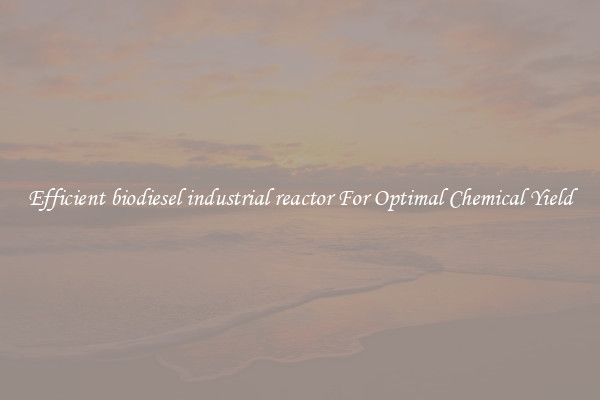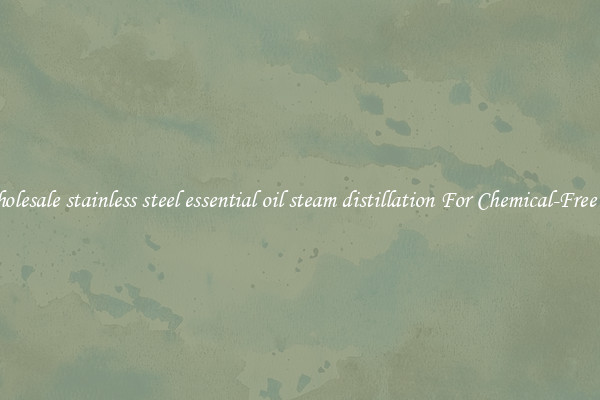Efficient biodiesel industrial reactor For Optimal Chemical Yield
Efficient Biodiesel Industrial Reactor for Optimal Chemical Yield

The demand for biodiesel as an alternative fuel source has grown significantly over the years, prompting the need for efficient biodiesel industrial reactors. These reactors play a crucial role in the production process, as they can greatly impact the chemical yield and overall efficiency of biodiesel production.
One important factor in achieving optimal chemical yield is the type of reactor used. Continuous flow reactors, such as the packed bed reactor or the tubular reactor, have been found to be highly efficient in biodiesel production. These reactors allow for a continuous flow of reactants, ensuring consistent and controlled reaction conditions. This leads to a higher chemical yield and reduces the amount of unwanted by-products.
Another key feature of an efficient biodiesel industrial reactor is the ability to control reaction parameters such as temperature, pressure, and reactant concentrations. Maintaining precise control over these factors ensures that the reaction proceeds under optimal conditions. For example, the use of catalysts in the transesterification process requires specific temperature and pressure ranges for the reaction to occur efficiently. Therefore, a reactor that can accurately regulate these parameters is essential for achieving optimal chemical yield.
Furthermore, an efficient biodiesel industrial reactor should also have proper mixing capabilities. Mixing is crucial for ensuring uniform dispersal of reactants and catalysts, allowing for efficient reaction kinetics and enhanced chemical yield. The reactor should be able to provide adequate turbulence or agitation to ensure effective mixing, avoiding any concentration gradients that may result in low chemical yield or incomplete conversion.
In addition, an efficient reactor design should also take into account the separation of biodiesel from the by-products and catalysts. An integrated separation system within the reactor can help to minimize process loss and increase the final chemical yield. Efficient separation techniques such as centrifugation or membrane filtration can be employed to separate biodiesel from the reaction mixture, while recycling the catalysts, further improving the overall efficiency of the reactor.
Overall, an efficient biodiesel industrial reactor is crucial for achieving optimal chemical yield in biodiesel production. The reactor should be able to provide continuous flow, precise control over reaction parameters, proper mixing capabilities, and an integrated separation system. By incorporating these features, biodiesel producers can maximize their chemical yield, reduce costs, and contribute to a more sustainable and greener energy future.

View details

View details

View details

View details








